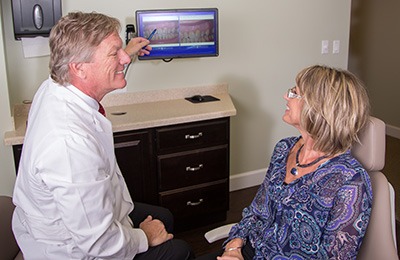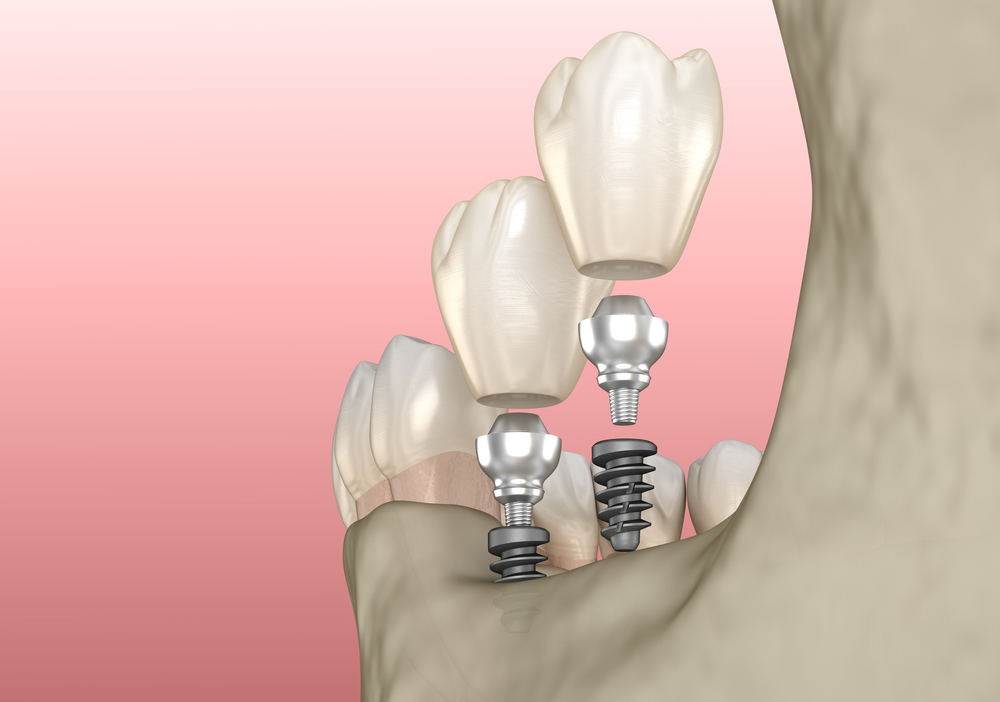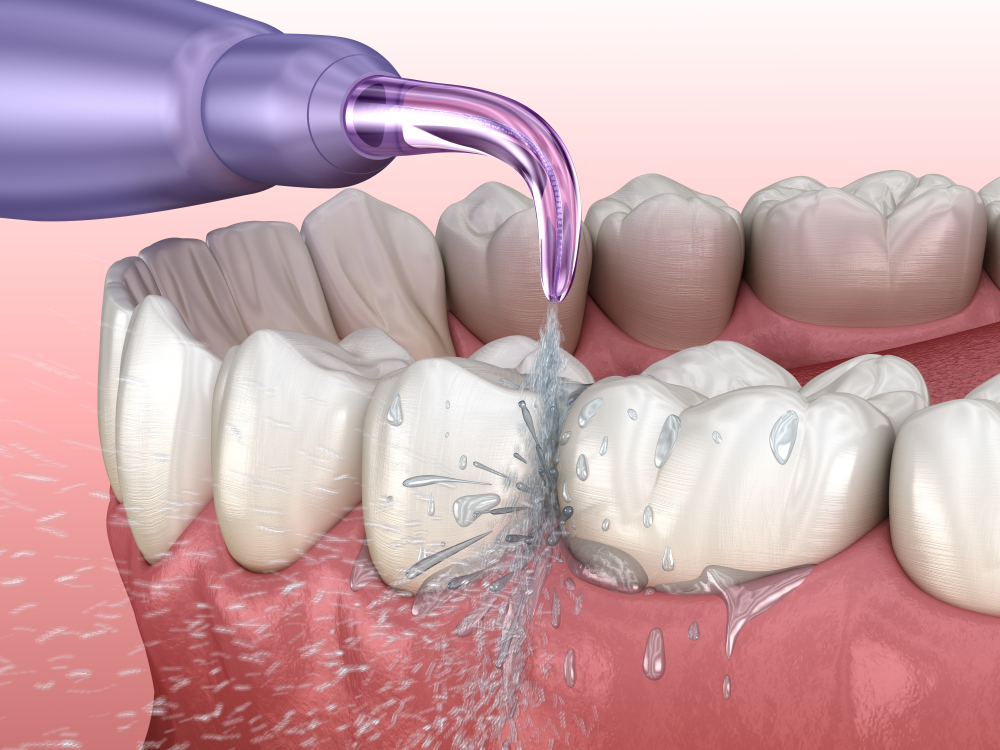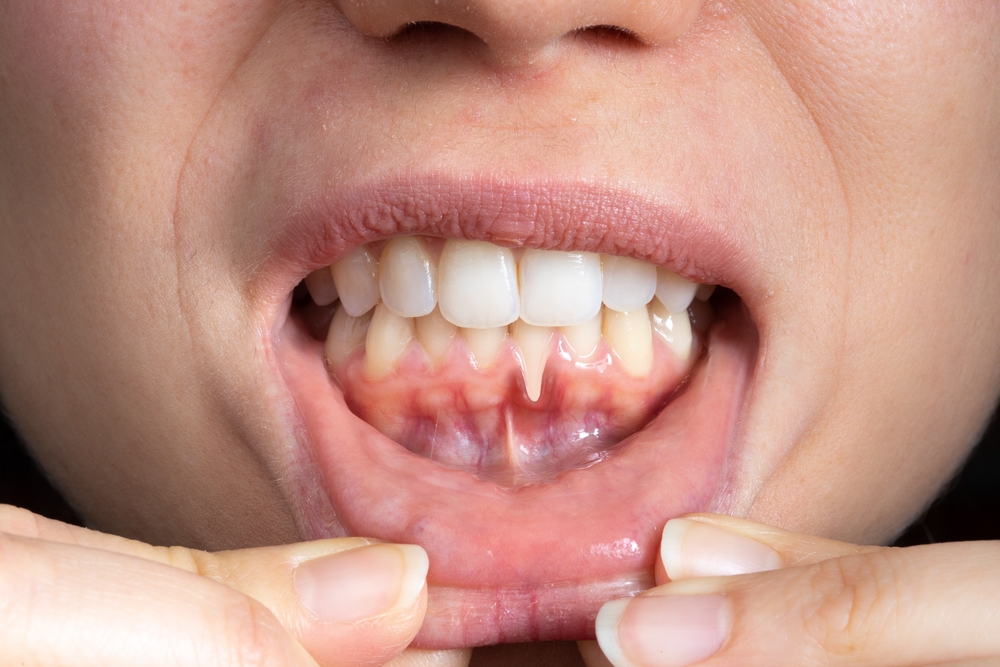Dental Implant Maintenance in Sarasota, Sun City Center, and Bradenton, FL
Caring for Dental Implants: A Comprehensive Guide from Rubino Periodontics & Implant Dentistry
Dental implants offer a lasting solution for missing teeth, enhancing both your smile and oral health. At Rubino Periodontics & Implant Dentistry, serving Bradenton, Sarasota, Lakewood Ranch, and surrounding communities, we are committed to providing our patients with the knowledge and tools they need for successful, long-term implant care. This detailed guide explains how to care for your dental implants, so they serve you well for years to come.
Our team is ready to welcome you to any of our three convenient locations. Please call our Sarasota/Lakewood Ranch office at 941-201-3055, our Bradenton location at 941-209-5052, or our Sun City Center dental clinic at 813-331-5845. We also invite you to schedule your appointment online through our secure booking system.
Rubino Periodontics & Implant Dentistry: Your Partners in Implant Care
At Rubino Periodontics & Implant Dentistry, we go beyond basic dental implant placement. We offer complete, lifetime care for your implants, making us a trusted partner in your oral health journey. Here are two aspects where our practice goes above and beyond:
Comprehensive Medical Coordination
With two Registered Nurses (RN) on our team, we provide excellent coordination of care. Our RNs collaborate with your primary care physician to align dental treatment with your medical needs. This collaboration allows us to customize your treatment plan, considering any underlying health conditions or medications you may be taking.
Smile Makeover Charitable Giving Program
Dr. Ryan Rubino leads a special Smile Makeover program for local veterans, providing a chance to receive new smiles using dental implants at no cost. This program demonstrates our dedication to helping people in our community through charitable outreach.
What are Dental Implants?
Dental implants function as artificial tooth roots, surgically placed into your jawbone. These titanium posts fuse with the bone through osseointegration, creating a stable base for replacement teeth that look, feel, and function like natural teeth.
Proper dental hygiene, smart diet choices, and managing stress with dental implants is vital in maintaining their longevity and preventing complications.
The Importance of a Consistent Oral Hygiene Routine for Dental Implant Care
Just like natural teeth, dental implants require consistent oral hygiene practices to remain healthy. Neglecting oral hygiene can lead to plaque buildup, gum disease, and ultimately, implant failure. The good news is that with the right habits and tools, maintaining your implants is simple and straightforward.
Brushing Your Dental Implants
Brush your teeth at least twice a day, morning and night, using a soft-bristled toothbrush. A soft brush prevents scratching the implant surface and damaging the gums. Use gentle, circular motions, paying attention to all surfaces of the implant and the surrounding gum line. Consider using an electric toothbrush with a gentle setting for effective cleaning.
Choosing the Right Toothpaste
Select a low-abrasive, tartar-control toothpaste. Harsh toothpaste can scratch the implant surface, so look for a formula specifically designed for sensitive teeth or dental implants. Your dentist can advise you on a specific brand if needed.
The Importance of Flossing
Flossing is vital for removing plaque and food particles from areas your toothbrush can’t reach. Dental implants require extra attention to maintain healthy gums. Use unwaxed dental floss, dental tape, or specialized implant floss. These options are gentler on the gums and less likely to shred, preventing irritation.
Employ the modified Bass technique for optimal cleaning. Place the floss against the tooth at the gum line, tilting it at a 45-degree angle. Gently move the floss in small strokes to loosen debris, then roll the floss to the top of the tooth in a flicking motion.
 Water Flossers: A Powerful Tool
Water Flossers: A Powerful Tool
Water flossers, like Waterpik, are excellent additions to your oral hygiene routine. These devices use a stream of pulsating water to remove debris and plaque from hard-to-reach areas. They are particularly beneficial for cleaning around implants without irritating your gums. Use a Plaque Seeker tip for the best results.
Interdental Brushes for Tight Spaces
Interdental brushes are tiny brushes designed to clean the spaces between implants and neighboring teeth. These brushes are ideal for removing plaque and food particles from areas where regular floss may not reach.
The Benefits of Antimicrobial Mouthwash
Incorporate an alcohol-free, antimicrobial mouthwash into your daily routine. These mouthwashes help reduce bacteria and promote gum health. Swish for 30-60 seconds after brushing and flossing to eliminate bacteria and freshen your breath.
Regular Dental Check-Ups: A Must in Dental Implant Aftercare
Schedule regular check-ups and professional cleanings with Rubino Periodontics & Implant Dentistry at least twice a year. These visits allow our team to monitor the health of your implants, remove plaque and tartar buildup, and address any potential issues early on.
What to Expect During Your Check-Up

- Examine your gums and implants for any signs of inflammation, infection, or recession.
- Measure the depth of the gum pockets around your implants.
- Take X-rays to evaluate the bone structure supporting your implants.
- Clean your implants using specialized instruments to remove plaque and tartar.
- Provide personalized oral hygiene instructions and recommendations.
Dietary Considerations for Long-Term Health
Your diet plays a vital role in the health and longevity of your dental implants. After the initial healing period, you can typically resume a normal diet, but it’s essential to make smart choices to protect and maintain dental implants.
Foods to Enjoy
- Soft foods like cooked vegetables, tender meats, soups, and yogurt are good choices during the initial healing phase.
- A balanced diet rich in protein, vitamins, and minerals supports tissue repair and bone health.
- Foods rich in Vitamin C and Vitamin D are especially helpful for collagen production and calcium absorption.
Foods to Limit or Avoid
- Hard, crunchy, or sticky foods can damage your implants.
- Sugary and acidic foods can increase the risk of infection and inflammation.
- Limit alcohol consumption and avoid smoking, as these habits can hinder healing and increase the risk of implant failure.
Addressing Gum Recession Around Dental Implants
Gum recession around dental implants can expose the implant surface, increasing the risk of infection and implant failure. If you notice gum recession, contact our team immediately.
Causes of Gum Recession
Several factors can contribute to gum recession around implants, including:
- Aggressive brushing.
- Poor oral hygiene.
- Inadequate bone support.
- Improper implant placement.
- Bruxism (teeth grinding).
Prevention and Treatment
- Use a soft-bristled toothbrush and gentle brushing techniques.
- Maintain excellent oral hygiene to prevent plaque buildup.
- Consider a soft tissue graft to restore lost gum tissue.
- Wear a custom-fitted night guard if you grind your teeth.
- Consider gum recession treatment, like the Chao Pinhole technique employed by Dr. Rubino
Managing Peri-Implantitis: A Serious Concern
Peri-implantitis is an inflammatory condition affecting the soft and hard tissues around dental implants. It is similar to gum disease and can lead to bone loss and implant failure if left untreated.
Symptoms of Peri-Implantitis
- Redness and swelling of the gums.
- Bleeding or pus around the implant.
- Pain or tenderness in the gums.
- Loose implant.
- Bad taste in the mouth.
Prevention and Treatment
- Maintain meticulous oral hygiene.
- Use an antimicrobial mouthwash.
- Schedule regular check-ups and professional cleanings.
- Seek prompt treatment if you notice any signs of peri-implantitis.
Frequently Asked Questions
How often should I visit the dentist after dental implant surgery?
It’s best to visit your dentist every six months for regular checkups and cleanings. These visits allow your dentist to monitor the health of your implants, remove plaque and tartar, and address any potential issues early. Some individuals with a history of gum disease may need to visit more frequently.
What are the signs of implant failure?
Signs of implant failure include difficulty chewing, gum inflammation, gum recession, increased swelling, and loosening of the implant. If you experience any of these symptoms, contact your dentist immediately for evaluation and treatment.
Can I whiten my dental implants?
Traditional teeth whitening products are not effective on dental implants. These products are made from materials resistant to bleaching. Discuss your options with your dentist if you are interested in brightening the appearance of your dental implants.
Your Long-Term Oral Health Starts Today!
Taking care of your dental implants is an investment in your smile and overall well-being. By following these tips and maintaining regular visits with Rubino Periodontics & Implant Dentistry, you can feel confident about your oral health. We are located in Sarasota/Lakewood Ranch, Bradenton, and Sun City Center. Don’t wait to prioritize the care of your implants.
Call Rubino Periodontics & Implant Dentistry today for an appointment and get started on the path to a healthy, beautiful smile that lasts a lifetime!
Call to request an appointment: Sarasota/


 Water Flossers: A Powerful Tool
Water Flossers: A Powerful Tool